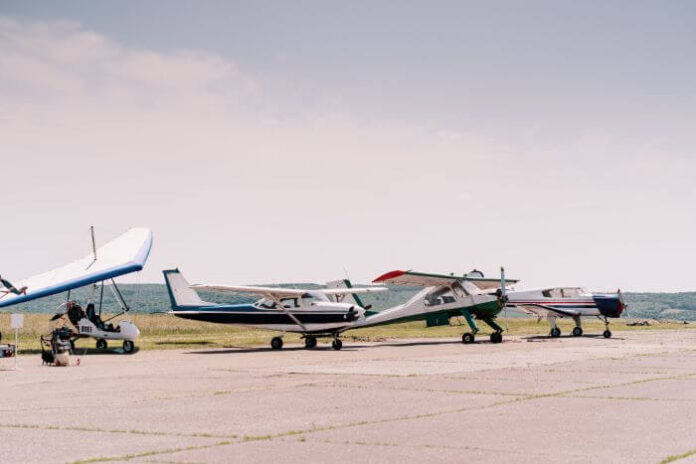Aviation logistics is essential in the military because it ensures that the deployment, maintenance, and transportation of military aircraft and their parts are performed efficiently. Air defense is a core part of military operations that can give a nation a significant tactical advantage. However, aviation logistics can sometimes be complex and challenging, but strategies exist to overcome these difficulties.
Importance of Aviation Logistics
Aviation logistics involves planning, coordinating, and executing activities related to transporting, managing, and sustaining aircraft or their parts. These activities include but are not limited to aircraft procurement, supply chain management, fueling, and transportation. The execution of these activities determines the availability, readiness, and operational capabilities of military aircraft.
Major Components of Military Aviation Logistics
There are many processes involved in aviation logistics, and the major ones are discussed below:
1. Aircraft procurement
The process of procuring government or military aircraft can be complex. It involves thorough requirement determination, intense contract negotiations, and delivery arrangements. Companies like Greenwood Aerospace that specialize in providing aviation logistical solutions to the US government and military ensure they acquire aircraft that fit their client specifications on time. All acquired aircraft should be fit for their purpose, durable, and provide substantial return on investment.
2. Repair and routine maintenance
Military and government aircraft must be constantly maintained to ensure they are always ready for operations. Aviation logistics companies should immediately repair any damage that any aircraft under their control suffers. This is because airplane accidents can be fatal to all passengers on board.
Delayed repairs will also prevent the use of a plane in emergencies. The logistics company should also schedule routine maintenance to spot potential issues before they arise. They should also collaborate with other military and government contractors to ensure proper inventory management for aircraft parts and accessories.
3. Supply chain management
Efficient supply chain management is necessary to facilitate smooth aviation operations. The aviation supply chain involves the procurement, distribution, and storage of aircraft parts, jet fuel, lubricating fluids, and other needed supplies. The supply chain can be optimized by streamlining distribution processes, forecasting demand, and proper inventory management. These will reduce aircraft downtime and maximize available resources. The military sometimes outsources logistics to third-party companies to increase supply chain efficiency.
4. Deployment and Transportation
The movement of government and military aircraft needs proper coordination and planning. These aircraft need regular transportation for training exercises, upgrading, maintenance, and military operations.
Aircraft are large vehicles that consume lots of fuel and require expertise to fly, so there should be proper planning to ensure the right plane is deployed at the right time for scheduled activities. Click to learn more about the services of a company that offers general, government, and military aviation logistical solutions.
Military Aviation Logistical Challenges
Aviation logistics are complex and come with specific challenges. Here are some of them:
Operations in difficult environments
Military aircraft are sometimes deployed to remote locations that are difficult to operate in because of harsh weather, limited infrastructure, and hostile presence. Logistical companies can tackle these challenges by adapting their plans to different locations, prepositioning resources, using technology to monitor their surroundings in real-time, and having open communication channels.
Timely aircraft maintenance and repair
Government and military aircraft need regular maintenance and repair to keep them ready for deployment. However, it can sometimes be challenging to stick to the maintenance schedule of multiple aircraft because of the limited availability of spare parts and repair facilities. There might also be a shortage of skilled personnel to work on the planes. Aviation logistics personnel should collaborate effectively with maintenance crew and spare part suppliers to reduce delays and aircraft downtime.
Security incidents
The safety of military aircraft and logistics personnel must be a top priority for any aviation logistics company. Their staff must be trained to implement security measures like threat assessment, facility evacuation, and access control. They should also use tracking and monitoring systems to keep aircraft safe and stop unauthorized personnel from accessing them. All aviation logistics personnel should be required to comply with workplace safety policies whenever they operate.
Personnel support and training
Military aviation logistics depend on skilled personnel for most tasks, including supply chain management, aircraft transport, and routine maintenance. Aviation logistics companies should provide extensive training to all their staff before they start operations. They must ensure that they have adequate staff to run operations effectively and provide support to personnel operating in remote and complex locations. Logistics personnel should also engage in periodic training programs for professional development.
Final Note
The military needs aviation logistics to keep its operations running smoothly. It enables them to deploy, repair, and maintain aircraft efficiently. Logistics involves aircraft procurement, supply chain management, transportation, and spare part inventory management.
The process comes with challenges that can be solved through thorough planning, proper scheduling, effective collaboration, and resource management. Companies like Greenwood Aerospace offer these services and can be contracted to facilitate smooth operations.







